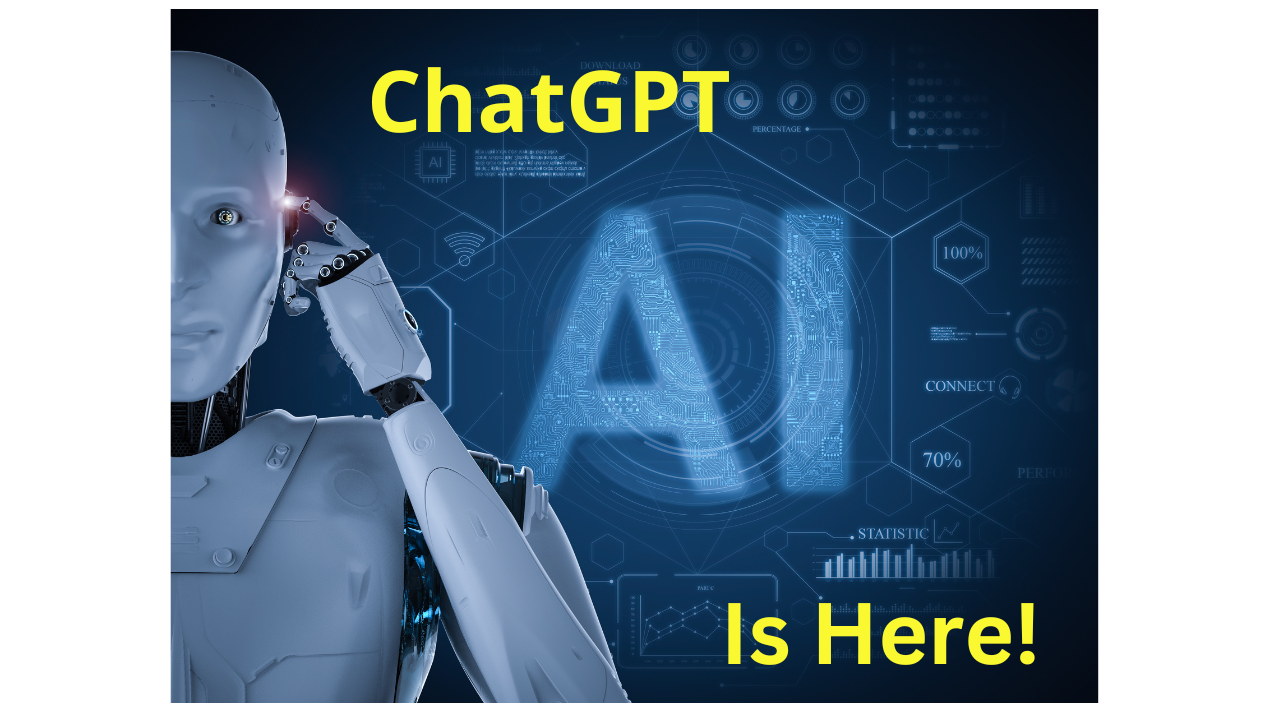ChatGPT. A must read!

AI (artificial intelligence). We all (sort of) knew it was coming. Well, it has arrived and created quite a stir within education. If you haven’t heard about ChatGPT, you need to explore it and perhaps have discussions at the program and institutional level about what this means for you, your students, and learning. Higher education is abuzz.
The implications are considerable. We can’t stick our heads in the sand and continue going along as usual. This is a true game-changer. The challenge is we don’t yet know all of its abilities or implications. What we do know it can do that gets our immediate attention is the ability to write a term paper, admission essay, assignment, or master’s project quickly, for free, and undetectable by any current plagiarism software. This means there is no way to tell whether the student wrote it or whether ChatGPT did.
As educators, this implication is unsettling, to say the least. Writing is one form that gives us a window into a student’s processing and thinking as well as their understanding of concepts and principles. Yet, we also know students have a strong dislike of writing. Some things cannot be truly assessed by multiple-choice questions, like an ethical dilemma or the implications of health disparities. Yet, before we dismiss this tool as only negative, it is vital to consider the best way to incorporate it into what we do with intention. One common recommendation is to consider working with students to help them understand how to use it effectively and appropriately and know its benefits and limitations (McCurtrie, 2023). We tend to think our students are digitally savvy. But our students are not very digitally literate when using digital resources effectively from an educational and learning perspective.
Since it is already here and has gotten extensive media coverage since November, it would be a good idea to take the time to explore what it is and can do at this point. Rest assured. It is continuing to push the limits of what it can do. So, if you think this won’t affect your course or what you do, think again.
Various institutions are creating working groups of faculty to explore the implications of ChatGPT and ways to integrate or navigate it within their programs and institutions effectively. It is important to keep an open mind and not simply see the negatives of this tool, which prompts more punitive consequences within your course. A few suggestions to achieve this include flipping writing assignments to occur during class. Have students write the assignment by hand (something we all know they love to do!) or shift to other assignments like group or individual presentations. Use oral presentations such as podcasts, TED talks, or prompts requiring them to draw from personal experience. However, the most inspiring recommendation I read said, “If you can create an atmosphere where students are investing in learning, they are not going to reach for a workaround” (McCurtrie, 2022).
I am still exploring it myself, but I wanted to get it on your radar, at least if you were unaware. And if you think you don’t need to pay attention to this, consider the following (McCurtrie, 2023):
- An emeritus professor of educational technology created a 2,000-word academic paper in 10 minutes.
- An admissions expert created a Common App essay that several admissions counselors thought was real.
- A professor at the Wharton School created a syllabus, an assignment, and lecture notes for an MBA-level introductory course on entrepreneurship.
I have compiled some resources here for you to explore. I recommend Beth McCurtrie’s two articles in The Chronicle of Higher Education. Many of the articles include additional links for resources. However, a quick Google search will yield significant results, as well. Good Luck!
References and resources
Alby, C. (2023). ChatGPT: A must-see before the semester begins. Faculty Focus, Retrieve from https://www.facultyfocus.com/articles/teaching-with-technology-articles/chatgpt-a-must-see-before-the-semester-begins/
ChatGPT. https://openai.com/blog/chatgpt/ (information about ChatGPT and link to try it)
ChatGPT Pro. https://chatgpt.pro/ (information about ChatGPT including use and application)
Gleason, N. (2022). ChatGPT and the rise of AI writers: how should higher education respond. The Times Higher Education. Retrieved from https://www.timeshighereducation.com/campus/chatgpt-and-rise-ai-writers-how-should-higher-education-respond
McMurtrie, B. (2022). AI and the future of undergraduate writing. The Chronicles of Higher Education. Retrieved from https://www.chronicle.com/article/ai-and-the-future-of-undergraduate-writing
McMurtrie, B. (2023). Teaching: Will ChatGPT change the way you teach? Retrieved from https://www.chronicle.com/newsletter/teaching/2023-01-05
Metzler, K. (2022). How ChatGPT could transform higher education. Social Science Space. Retrieved from https://www.socialsciencespace.com/2022/12/how-chatgpt-could-transform-higher-education/
Montti, R. (2022). What is ChatGPT and how can you use it? Search Engine Journal. Retrieved from https://www.searchenginejournal.com/what-is-chatgpt/473664/#close
OpenAI. https://openai.com/about/ (home page of company behind ChatCPT)
Watkins, M. (2022). Guest Post: AI will augment, not replace. Inside Higher Ed. Retrieved from https://www.insidehighered.com/blogs/just-visiting/guest-post-ai-will-augment-not-replace
